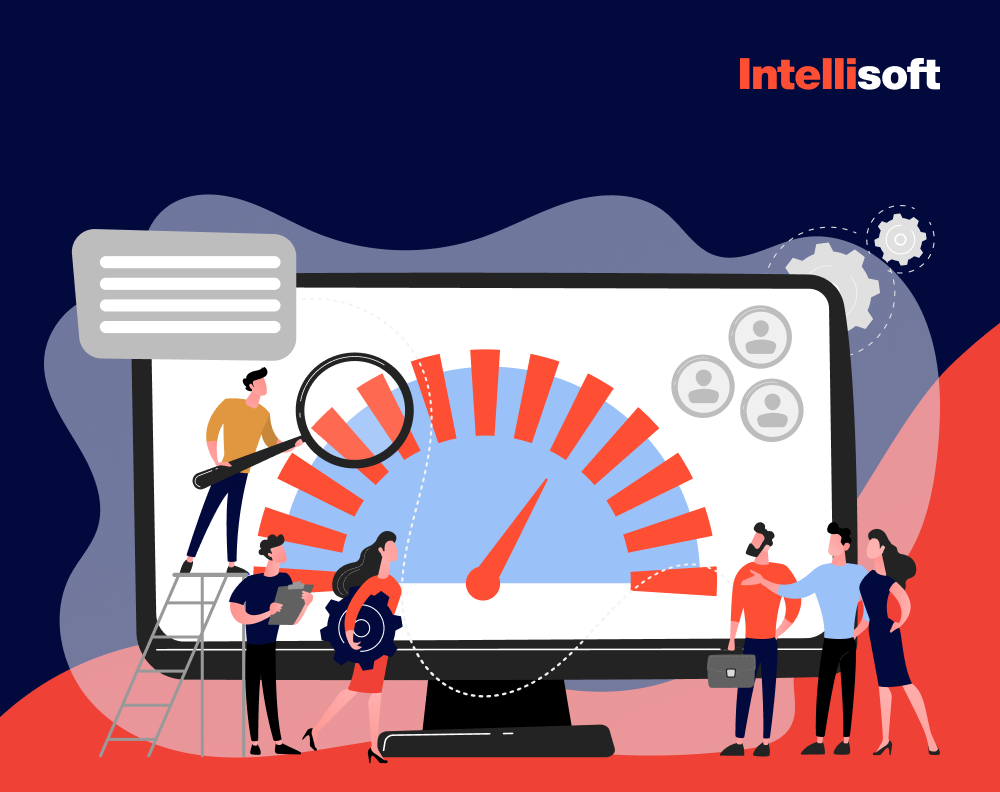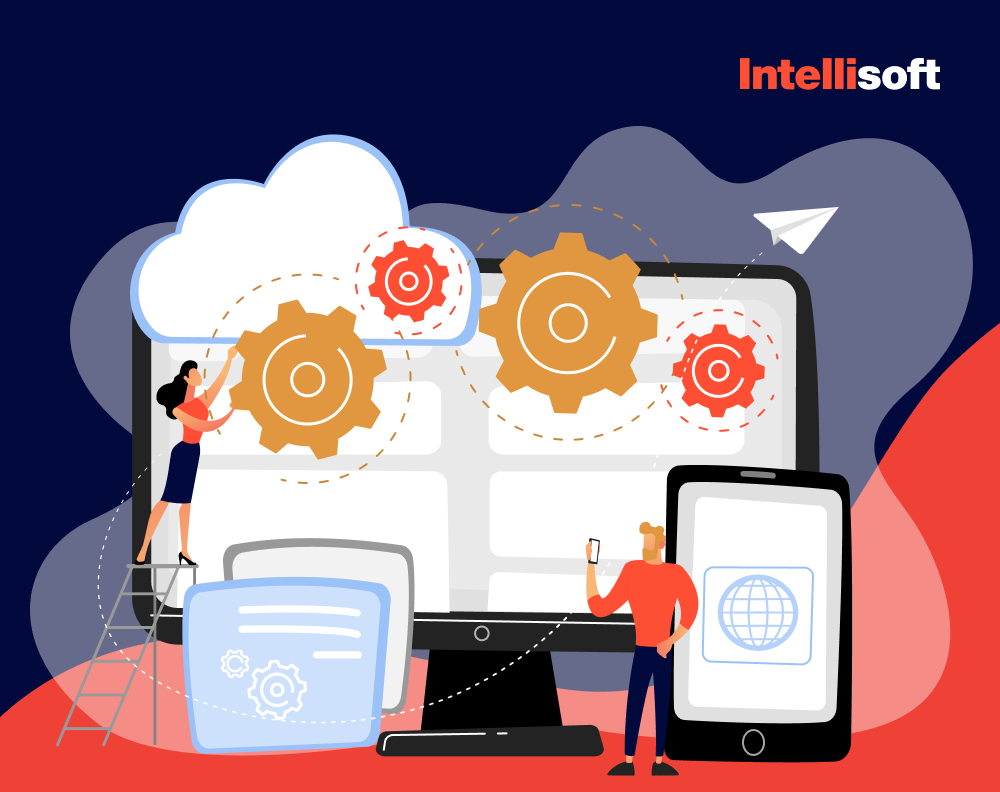Python is surging in popularity, swiftly becoming the go-to choice as the second most sought-after language for web development, all thanks to its impressive scalability. Tech giants like Dropbox, YouTube, Netflix, and Google use Python, the most popular programming language according to Github, to create their applications and server software.
However, let’s not forget: it’s not just about the language itself that makes magic happen in the world of software. It’s the talented engineers behind the scenes who truly make the difference. For programmers, Python has a large and supportive community with 15.7 million developers. As a result, there is a great deal of competition for Python experts, making it challenging to find qualified candidates.
That’s why businesses, whether they’re budding startups or established enterprises, are on the hunt for Python teams with a blend of hands-on experience and profound expertise in their respective fields. In 2023, demand for Python developers will increase by 41% globally. Therefore, you may need to hire Python developers for your company.
Now, the burning question is: How do you go about assembling a crack team of Python developers capable of crafting top-notch software, whether it’s a straightforward CRM solution or a sophisticated financial system under heavy loads? However, when searching for such specialists, you cannot judge them based only on their educational background or degree. Technical proficiency, work history, and previous projects provide information about the developer’s abilities.
Since you are looking for professional Python developers, IntelliSoft can help. Learn more about our software development and dedicated developer teams services we have provided since 2007.
Now, let’s take a look at who are Python developers, reasons your company may need to hire dedicated Python developers, and how you should build a team for your project in our post.
Table of Contents
Who Is Python Developer?
The Python Developer uses the Python programming language, frameworks, and tools to design, program, and modify software or websites. Developer responsibilities include writing code, developing server-side components, designing and building applications/websites, integrating storage solutions, debugging programs, etc.

The Python developer works closely with data analytics to formulate the necessary answers to questions. If you look at the data analytics industry, the market value is projected to be $655.5 billion by 2029. It increases the demand for Python.
The duties associated with a developer role can change from one company to the next. Some programmers choose to be independent with their projects in Python. Python freelancing jobs sometimes split their time between several different organizations.
Why Choose Python for Your Upcoming Project(s)
Python is a general-purpose programming language used in many areas of the IT industry. Its main features are:
- Object Orientation. Python is a language designed according to the object-oriented programming (OOP) paradigm. It is based on the notions of object and class. Classes are particular data types, while objects are instances of classes. That is, any value is an object of a specific class. In Python, you can use existing classes and create yours.
- Interpretability. Programs in Python are not translated into machine code, but an interpreter program immediately executes them. This feature allows you to run the code on any platform with a pre-installed interpreter.
- Code clarity. Indenting code blocks is a syntactic feature that makes it considerably simpler to read programs.
- Dynamic typing. Unlike C-like programming languages, in Python, variables are associated with a type when specific values are assigned.
As for the specific advantages that make many developers worldwide choose Python, this language refers to the following:
- Ease of usage and understanding. Even if it seems complicated for a person to master this language, they can turn to one of the existing communities. The large community of developers and enthusiasts of the language can always share valuable hints. Python development is based on regularly updated and well-regulated PEP documentation (Python Development Proposals).
- Speed of development. Writing programs in Python requires a much smaller amount of code than in the case of other popular languages like Java or C. This fact significantly speeds up the development cycle, allowing specialists to create complex software faster than in other languages.
- Multiple open-source libraries. In addition to the standard library, Python has a large selection of additional libraries. Among the most popular are Flask, Django, NumPy, SQLAlchemy, Pandas, etc.
- Scalability. Adapting high-level logic, Python tools, and applications are easily extendable and scalable.
- Support for numerous programming styles. Python has your back if you decide to change how you approach development. It has a more flexible way of programming than Java. Developers can use it with procedural, object-oriented, and functional programming styles.
- Perfect solution for MVPs. Python can help you quickly demonstrate your product to potential customers or investors. Given Python’s efficient code and code reuse, it’s no surprise this language is suitable for developing minimum viable products (MVPs) and prototypes. With fewer lines of code, developers can accomplish the same tasks as when using other languages.
Things to Consider Before Hiring a Python Developer
Budget, deadlines, project scope, and other things – there is much to consider before starting! Let’s learn all the features before you decide to hire Python developer for your project.
Budget
While launching a business, it might be challenging to hire Python developer or CTO full-time, if not impossible. Hiring a full-time developer or a chief technology officer (CTO), contracting with a custom app development firm, or creating the product yourself are all viable options. They’ll have more skin in the game and can help maintain brand identity over the product’s lifespan.
A third-party app development agency may be your best bet in terms of resources since it may be able to assist you with every stage of the process, from design to development. On the other hand, this route may need a much larger financial commitment.
Then again, you could always construct an app yourself. This option is the least expensive choice and not unprecedented. Still, you may face difficulties if your team lacks expertise or resources.
Scope
As a startup founder, you might not have enough money to develop a complete product. It is better to release your product ASAP. Therefore, you must reduce the features to those that matter. This action will enable you to thoroughly assess product-market fit and iterate from there because it is your MVP. Answer these questions off you go:
- What is the major issue that your solution addresses?
- What distinguishes it from existing products on the market?
- How does this benefit your intended audience?
Also, keep in mind the most crucial feature that sets your app apart from the competition:
- What aspects of this hypothesis are most important? You should put this to the test in your minimum viable product.
- What options are desirable but not necessary? You can put them on hold until the next release; perhaps, you will prioritize other features later.
Time
Determine the total number of hours required to complete the product. It depends primarily on the number of features your software contains, its complexity, and its development environment.
A standard error in this context is to state, “Alright, I want Uber for X” or “I want Facebook for Y.” While they point you in the right direction and can help you determine what you enjoy about such apps and which features you would like to incorporate, they set your expectations too high.
You shouldn’t anticipate a Facebook copycat if you don’t have $500,000 to spend.
Features
Keep in mind that the app’s difficulty equals more money. Asking yourself the following questions regarding popular features that add to the complexity of the software and, as a result, the cost of developing will help.
- Will users sign in using their email addresses, social network accounts, or neither?
- Will users establish their profiles?
- Will there be integration with third-party services?
- How does the software create money for its developers (fee for using the platform, fee for using the membership, freemium, in-app purchases, initial cost, etc.)?
- Is there a search function? What about ratings and customer feedback?
- To add or change material, what levels of administrator access are required?
Design
The importance of having complete design papers tends to be lower than having a solid plan for cost and scope. The next step is to imagine your app from the user’s perspective and map out the various stages and interactions they might have with it. You are well on your way to developing a successful product if you have thought out the following: your product’s goal and value proposition, your target audience, the features that will make up your MVP, the platform, and the languages.
Keep in mind your developer is not a designer at this point. A designer could be an option, but it could get pricey. You can rely on your developer to offer suggestions and create a functional solution, but do not expect slick user interfaces and frictionless user experiences.
Hiring a developer to make a logo, icon, or other branding-critical pieces without having them design the complete interface is one compromise. This compromise implies that you and your developer will have a lot of leeway in deciding how your app will look.
Tech Stack
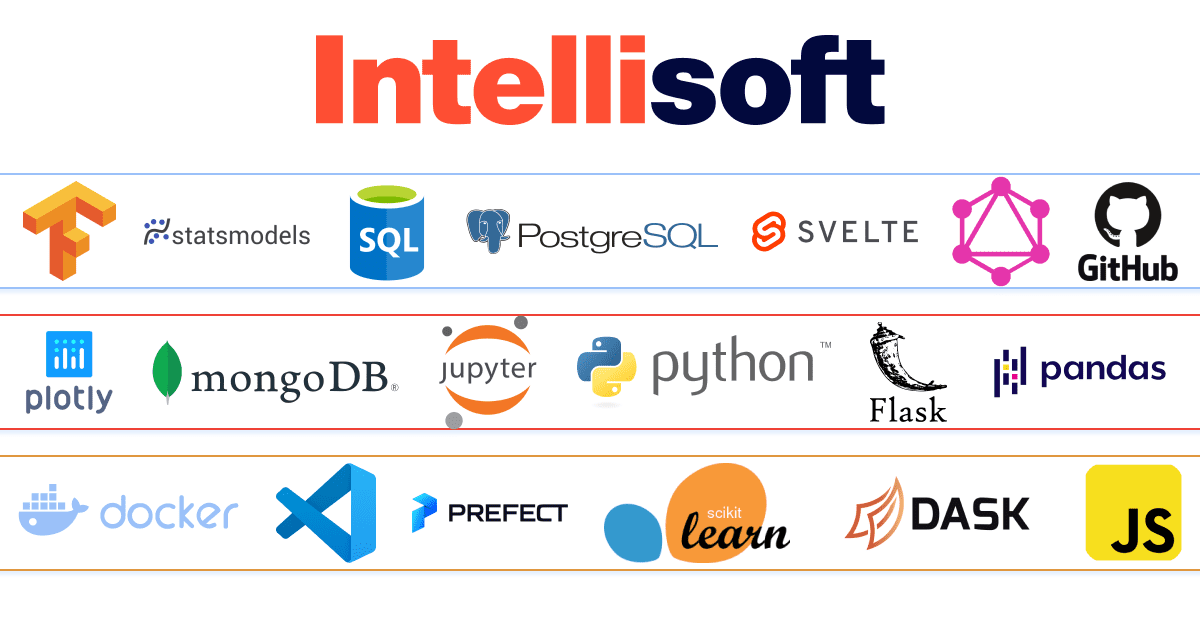
Next, you must settle on the development environment, platform, and technology stacks. The chosen tech stack will depend on the preferred platform, mobile friendliness, community, and functionality. Do not forget that every programmer tends to favor the tools they are most familiar with.
Skills of a Qualified Python Developer
We will discuss the primary hard and soft skills useful for those who want to be a Python developer.
- Expertise in Core Python
A good Python developer must master all the basic concepts that are the foundation of any programming language: knowledge of databases, conditional and control operators, loops, variables, and data types, data structures & algorithms, and module & file handling.
After mastering these concepts, one can easily choose a career path. After all, a Python developer can work as a data scientist, data analyst, ML/AI engineer, QA tester, etc. Each position requires skills in working with a narrower set of libraries, frameworks, and tools. So over time, after learning the basics, such experts can already be working on getting more in-depth skills.
- Knowledge of Python Libraries
Python’s standard library is a collection of modules, some in C (to add to the system’s capabilities) and others in Python (consisting of standardized solutions that solve everyday coding problems). Developers can expand the standard Python library with the help of third-party library modules.
The Python Package Index (the official repository for software written in Python) alone contains over 350,000 ready-made packages, each containing a set of related modules that provide some functionality.
When programmers intend to design something or get stuck in the middle of a project, they have access to all of these libraries (e.g., TensorFlow, Requests, Matplotlib, Peewee, etc.), which contain the necessary documentation and guidance.
- Good Grasp of Web Frameworks
Its versatility is the main advantage of using a framework instead of a library. Customizing frameworks and adding the necessary tools to extend their functionality is possible. Instead of writing code for every project, Python developers can find ready-made components in the framework. They save money and time and reduce the time to market (TTM) for the product.
Although a vast number of frameworks are available in the web development market, there are primarily three types of Python frameworks: the entire stack framework, micro-framework, and asynchronous framework.
Django, Flask, and CherryPy are some of the most popular frameworks for Python developers to master.
- Object Relational Mapping
Object-relational mapping (ORM) is a technique used in Object-Oriented programming languages for converting data between incompatible type systems. It generates a database of “virtual objects” accessed from any language. Developers can use specialized ORM tools.
- Road to Data Science
Developers can use essential tools like Pandas, NumPy libraries, and Jupyter Notebook. If they decide to go into Machine Learning, they should pay attention to Scikit-learn or more complex PyTorch and Keras libraries. The latter is a wrapper over TensorFlow, a popular library from Google.
- ML and AI
Web applications built using machine learning and artificial intelligence can be extremely useful, and developers who know how to use these technologies are in demand among professionals. Therefore, Python developers for hire should be able to work with neural networks, data collection, analysis, and visualization. Knowledge of AI/ML algorithms and data science will give applicants an edge in job interviews and hiring.
- Deep Learning
One of the fastest-growing subfields of Data Science is Deep Learning. A Python developer needs to be well-versed in Data Science fundamentals, as well as ML and AI in general, before diving into the more advanced topics of deep learning.
Some other factors to consider are NLP (Natural Language Processing), Analyzing Sounds, and Dealing with Video Material.
- Debugging
Python is an easy language for beginners because it has a simple syntax and is easy to write code in and read hassle-free. Sometimes errors can occur during coding, or you try to get one result and end up with the result that is not exactly what you wanted to achieve. For example, an off-by-one error may occur with range() when the number of iterations of a step-by-step loop is less or one more than necessary.
In such cases, it’s necessary to have debugging skills (troubleshooting errors in the code). Some debugging steps consist of printing variable values, changing the path to the program, stopping the execution of some events, and using the debugger.
- Understanding of Multi-Process Architecture
A team may include a design engineer, but a developer should still be familiar with how the code functions throughout deployment and release. Python developers must be familiar with the MVC (Model View Controller) and MVT (Model View Template) architectural styles. After understanding the multi-process architecture, they can resolve issues pertaining to the core framework, among other problems.
- Analytical skills
Python developers rely on their analytical skills in data science to visualize data. This trait allows them to identify the source of the problem and its consequences. They understand and can interpret the algorithms showing up in writing application code. These analytical skills also help them write error-free code and build sophisticated websites.
- Design Skills
A good Python developer should be able to develop scalable solutions and install highly available servers. They can use Python for client-side and server-side programming, so it’s essential to consider frameworks like Django or Flask when developing a website.
- Communication skills
As a rule, a developer cannot solve big tasks alone. A good programmer must be a team player and communicate effectively. Teammates, management, customer representatives – engineers must solve working issues with all these people, agreeing on the most suitable time and tools for discussions.
What Are the Roles in a Python Development Team?

Typically, a productive software development team consists of 5-7 people. This size allows each team member to fully immerse themselves in the project details and understand the scope, problems, and possible solutions. If there are more than seven people on the team, you need to establish guidelines along with workflows and always make an effort to coordinate the group (or hire a Python developer to blend in your place).
Product Manager
Often the activities of product managers (PMs) relate to the technology or marketing departments. Still, there is no clear distinction because the product manager knows different areas.
The ideal situation is when the product manager remains independent enough to determine the product roadmap, direction, and strategy. For example, a PM reporting to the chief engineer would have to keep the focus on technical details.
In the context of working with the IT team, a PM must have process tools (starting with the knowledge of Agile, Scrum, and specialized programs for implementing these processes in the team) to ensure control over the result and set technical goals competently. It’s also essential to understand the structure of the company’s IT services (architecture and service infrastructure, the nuances of the release process, existing tech risks in the company, the concept of technical debt, and task distribution between the Dev, QA, and DevOps teams).
In addition, the product manager should act as a recognized leader for the IT team to focus on the necessary tasks and increase the team’s efficiency.
Business Analyst
Business Analysts are intelligent, grounded professionals who are highly effective and have the credentials to build solid relationships and a deep understanding of the business in ways that maximize the organization’s benefit. Business analysts are responsible for conducting workshops and meetings that become a platform for organization members to communicate their ideas and concepts, such as detailed workflows.
The business analyst, also called a BA, plays a vital and meaningful role in the Python development team, although it is not formally defined in the framework. They liaise between the product owner/customer and the IT team. The BA’s primary role is to provide an evaluative opinion of the product’s tech processes and explain them to the developer. They don’t handle the business processes as the product owner would, but they have an important role. The role of the business analyst is not defined and can vary greatly.
Project Manager
A project manager is a specialist who manages the development project as a whole. This person develops a plan (writes the technical requirements), assembles the team, removes obstacles for the team, adjusts the process of working on the project, controls the quality so that the team completes your project on time, provides feedback between the team and the customer, and even deals with the budget.
Project managers work wherever there are large-scale assignments that require a variety of performers. You can find them in design bureaus, exhibition and conference companies, construction firms, factories, and more.
Tech Lead
A tech lead should focus not so much on what technical decision to make but on how to help the team achieve the right technical decisions. They define the tech stack for specific projects or tasks, implement new approaches to development, testing, delivery, and selection of new technologies, build processes (e.g., CI/CD, code reviews), minimize risks to product development associated with technical limitations, overcomes technical roadblocks to business, develop tech skills the team members, and more.
UI/ UX Designer
The user experience or user interface designer’s main job is to take care of the experience when interacting with the final product. To achieve satisfaction, a UX designer must be empathetic, aware of user needs, and proficient in various methods to test whether their design works for the target users. A good UX designer must be attentive to detail and able to notify and correct user problems quickly.
A UI designer assumes and anticipates what users can do with the product, what they need, and what they expect and see. UI designers ensure every product element is easily accessible, understandable, and comprehensible through graphic and proprietary design. Typically, UI amalgamates user interaction, visual design, and information architecture.
These experts’ creativity helps solve different problems, understand business goals, and look at them from different perspectives to find the best solution. The more experienced UX designers are, the better their foundation, ethics, and principles. On the technical side, a UX/UI designer should have some standards and procedures and use many tools to test and solve user problems.
Python Developer(s)
Python is a language for back-end development since it is suitable for server-side programming. A Python back-end developer is a specialist who develops the server-side (internal, hidden) part of the application and is responsible for the interior architecture, logic, and database interaction. Their main goal is to make the services understand requests and the sites respond correctly to user actions. For example, when a user clicks a button, a product goes to the cart, or a platform submits a request for review.
QA/Tester
The main activities of a QA engineer are prioritizing, evaluating, planning, and coordinating tests. The QA engineer verifies that the ready solution meets the required specification, focusing on quality and developing documents to provide timely and helpful feedback. The QA on the development team should be a perfectionist, emphasizing test planning and test cases, which should be detailed, structured, and well-organized.
A good job of QA is to define, discuss, and mediate processes, procedures, specifications, and quality standards. QA also evaluates customer requirements, making sure the team meets them. As you know, some customers value saving time and money over quality, pushing the development team to write faster and tending to skip the QA phase. You need QA when your solution needs to be robust and thoroughly tested. With QA, you can save time and money that would otherwise go for improving unanalyzed buggy code in later stages of development.
How to Build a Cool Development Team
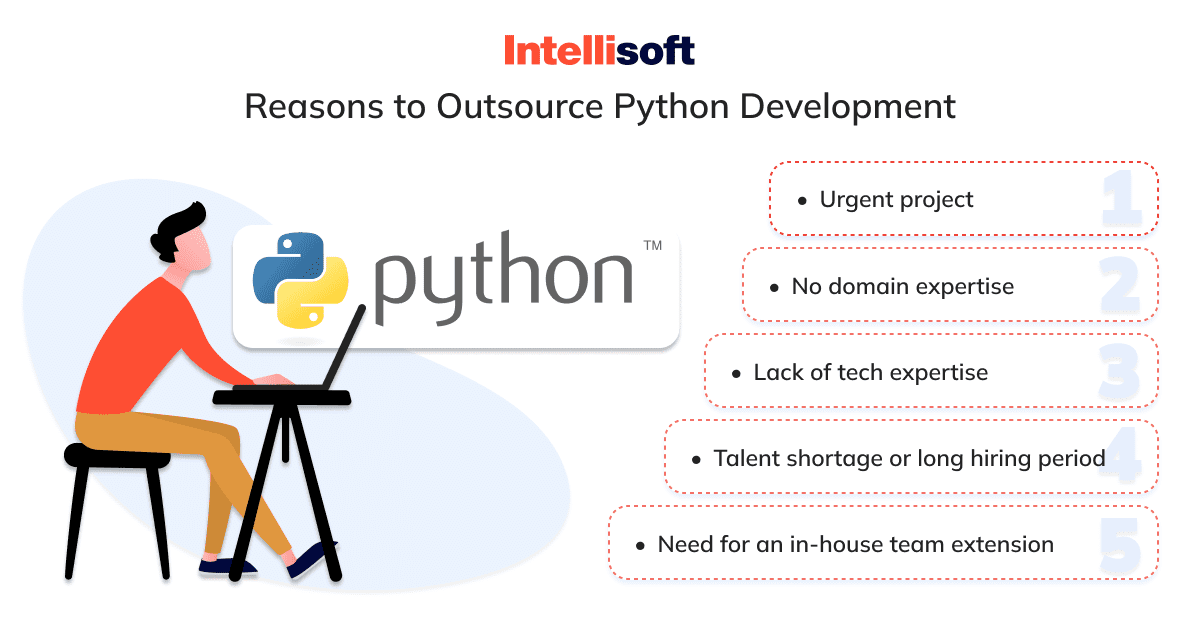
It might take weeks or months to come up with your development team, depending on the model you choose. The software creation timetable typically ranges from four to nine months. The project’s scope, as well as its level of difficulty, determine the length of time to complete it. Still, what are the steps to building a development team and getting a ready project?
Set Up Clear Goals & Requirements
Clearly defined roles and responsibilities of the software development team are the key to success in any software IT project. You should first decide on the business goals, timeframes, expected outcomes, programming languages, frameworks, preferred tech stack, etc. After that, you can detect the necessary positions. The structure of the IT development team depends on your needs. One project may require only mobile app developers, while another may require an entire cross-functional team.
Take Control of the Hiring Process
Focus all team members on hiring so that everyone can add up to this process. Not just HR, but also PMs, marketing & sales, team leads of various departments, designers, R&D, content writers, and others – the entire team should participate in at least some phases of recruiting.
Hiring should be the priority. Try to put the process in a two-week sprint of hiring-related tasks: writing job specifications, looking for references, finding cold contacts, and interviewing. You may fall behind in your current product tasks, but in the long run, you will find precisely the specialists you need and catch up with them all together. If you still want to avoid tiresome hiring tasks, the best option is to turn to an outsourcing company.
Look in the Right Places
The best way could be mixing various channels for finding IT specialists. However, if you do not have time, just look below and decide which options suit you better.
- Research and review platforms
TrustPilot and Clutch fall into this category. Those are review platforms open to everyone. Users can share their experiences to help others make better choices and encourage companies to up their game. For instance, you can publish your company’s profile and let them know you’re hiring or leave feedback after working with the specific company or individual developers.
| Pros | Cons |
| Clutch paints a picture of what a possible relationship could look like. Clients-to-be can get a good idea of what it might be like to work with you. | A customer’s perception of your company and decision to buy from you may be impacted by the lack of unfavorable reviews. |
| It lets people give feedback without giving their names, so there’s no risk for the client. | You may pay to use the majority of independent review sites’ services. |
| The aforementioned advantages, like brand promotion and favorable evaluations, are yours to enjoy at no additional expense. | Some reviews might be outdated. |
- Freelance and recruiting platforms
You can hire Python developers on freelance exchanges, so you should post vacancies there. The classic options are Upwork, TopTal, YouTeam, MoonLightWork, Gun.io, and Codementor.io. Python freelancing jobs, designers, and other professionals in the IT market cooperate with it.
| Pros | Cons |
| You can immediately find a specialist for the team or work with a Python freelancer to better assess their skills. | Freelancers who run other projects at the same time may not understand all the product aspects and do their work poorly. |
| Users of freelance exchanges are ready for a small or average salary. | Some freelancers may refuse to work and condemn the company to an urgent search for a new employee. |
| Many candidates have large portfolios and diverse experience |
- Social networks
When creating a team for a startup or small business, you can use LinkedIn or Facebook. It is enough to post a job on the wall or in the discussions of the community or channel.
| Pros | Cons |
| The search for specialists is possible not only in groups and channels with vacancies but also in communities of interest. | You can get a large number of irrelevant responses. |
| You can get more information about a specialist: their interests, character traits, etc. | A post about the vacancy may be distributed to other groups without the company’s knowledge. |
| A large number of potential candidates. | There is a high risk of encountering unwarranted negativity from users. |
- Developer job boards & communities
You can find people for the development team on classic platforms, such as Stack Overflow, Dice.com, Mashable, or AngelList. However, IT specialists do not only post resumes there. They often use specialized services and communities like NHS Python, Python Discord, or OpenEDG Python Institute Community.
| Pros | Cons |
| Employees can be found quickly. | There are too many job seekers. |
| A secure transaction between employer and employee is guaranteed. | Popular job search sites are not used by all IT specialists. Seniors might be missing. |
- Outsourcing companies
In recent years, the demand for outsourcing services has increased because of the pandemic. However, the most successful foreign corporations, like Google and Apple, were using this method even before the lockdown. Outsourcing is the right option when your business needs more resources to develop the key business processes in which it excels.
| Pros | Cons |
| Outsourcing leads to lower costs. This approach is cheaper than maintaining your own structure. | The outsourced team may fail to meet all of your requirements. |
| Outsourcing reduces the amount of HR administration and paperwork. | Some risks to confidentiality may arise. |
| Outsourcing allows you to get access to a greater talent pool and frees up your time to focus on the core business activities. |
Mind the Senior/Junior Proportion
While assembling a development team, you can pick from senior, intermediate, and junior programmers. Your team requires all of these for maximum efficiency but in the appropriate proportions.
Mentoring junior developers and bringing a thorough understanding of the application’s design are two benefits senior developers can contribute to a team. They will also aid in maintaining a productive team and imparting that knowledge to others. On the other hand, developers at the junior and intermediate levels will be responsible for creating new features, fixing problems, and carrying out other tasks under the supervision of more senior colleagues.
Try to steer clear of hiring solely inexperienced engineers. Your team can release code at the optimal speed and have a clearly defined direction if it has the proper balance of senior and younger members on its roster.
Hire Python Coder Who Is Passionate About Their Work
Hire Python developers interested in coding their projects and have passion projects just for fun. In other words, programming should be both work and a hobby to them. For instance, Google implemented a 20% policy to allow its software staff to spend up to 20% of their time working on their ideas and initiatives. Reports from the company indicate that employee energy and excitement rose.
Evaluate and Cultivate Soft Skills
Soft skills are necessary for Python coding jobs for several reasons. First, they increase personal productivity. Sometimes it’s more effective to ask a colleague a question and get an answer in ten minutes than to look for a solution to a problem day long.
Second, soft skills optimize the work process. If technical skills are not perfect, soft skills make up for it. Employees who ask questions can clarify information or ask for help.
Finally, they assist with scheduling time and allocating resources. Employees who know how to set tasks and allocate work time obtain more resources.
Let’s analyze the importance of soft skills in the example of a standard Python development team. The PM wants more features for clients, the QA engineer intends to remove all the bugs, and the designers want to play with fonts. The programmers realize that some of this is impossible, some unnecessary, and there is no time for the rest. The team can only make the product if everyone agrees on specific points (finds a compromise).
Assign an Assessment Task
Giving one 20-minute test to all shortlisted candidates can slow your recruitment process by several days. It is not uncommon for developers to treat the assessment sharply negatively and banish all employers with such a requirement. In this case, it makes sense to do the test only if you cannot review the applicant’s portfolio or have doubts.
Technicians and HR specialists agree that the best option is a short assignment right at the interview. Live coding, while stressful, allows for a quick unmasking of both parties. The employer sees how the candidate thinks and solves problems, and the candidate can assess how pleasant and effective the communication with the employer is in the work process. It’s an excellent way to see if you’ll work well together, literally in 30 minutes.
Invest in a Hiring Process & Mentorship
Software development teams are more than just developers and CTOs. Experts define them as tight knots of different skills necessary to a given project stage that belongs to various specialists. You can’t hope to succeed on any project if you don’t have enough resources, can you? Well, it’s time to realize that more than 50% of IT projects fail because of poor resource planning and/or missed hires. Senior management should know that well-managed and trained team members lead to successful IT projects.
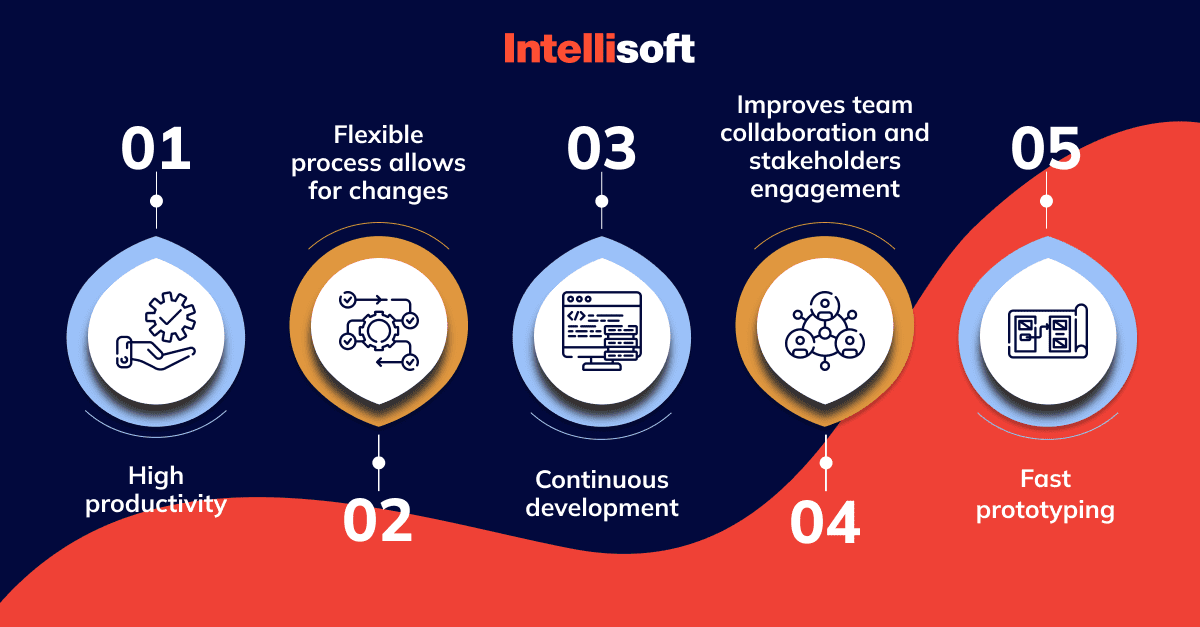
Pay for professional conferences and courses, so your staff never stops expanding their horizons. Make sure everyone knows their role in achieving the overall goal:
- Write down the exact points of your release plan, taking into account timelines, goals, and necessary resources.
- Agree on decisions with possible risks and how to manage them.
- Make sure everyone is on the same page about how you communicate, know who to approach with questions, understand the sequence of actions in case of unexpected problems, etc.
The document with extra info should be available to all team members for self-monitoring and as a standard procedure for quick action in case of problems.
Provide as Much Information as Possible About the Project
Breathe life into your job descriptions and add more specificity to them – tasks, business goals, and expectations should be as clear and precise as possible. When looking for a person to join the development team, you can’t do without details about the product: they need to understand what they will implement. Which tools will they use? To whom will they report? What are the deadlines for every assignment?
Be careful with vacancy and project descriptions to avoid accidentally revealing the company’s product plans or other sensitive information. Try to give a specific description of the project without recalling inside data like financial goals. Sometimes, the company reveals its name to the candidate only after responding.
Provide Necessary Tools
Ensure your IT team has the tools to make their job easier and faster. Ask them what software and hardware they lack, and be sure to provide it.
Software development team leaders recommend JIRA, ClickUp, and Trello as ultimate project management tools. You can combine them with Atlassian tools like Bitbucket and Confluence. You can also choose other products, such as Microsoft TFS and VSTS.
Empower Your Team & Improve Communication
Development teams often have problems with other teams. The problem is that other departments may treat developers like people who just do what other teams tell them to do instead of real collaboration. To get the most out of your development team, you must give team members power and listen to what they say.
Python developers to hire should be able to plan their careers and choose the best technologies for each assignment. Having to answer for their choices will make them more motivated and feel like they belong to the project.
Establish a schedule for management and development teams to meet regularly to discuss issues and formulate solutions. Developers are best able to set priorities, report on their progress, and provide management feedback when allowed.
A true sign of a healthy team is that it can function as a self-organized group that knows how to manage itself even when times are tough. Team members act independently, each knowing their role in achieving a common goal. The only real manager of a high-performance development team is their goal. Outline the boundaries within which the team can make its decisions.
Build a Motivating Culture and Celebrate Success
Maintaining your team’s morale is vital for decreasing work-related stress and preventing burnout. It is prudent to celebrate your victories immediately after they occur. For instance, you can throw a shipping party to commemorate a significant release. If you work on a tight deadline over the holidays, take your team out for a day of fun to relieve stress and create a positive memory of the project.
Mistakes to Avoid When Hiring Python Devs
Unfortunately, some companies fail to build effective dev teams. Avoid these pitfalls so as not to repeat their fate.
Prioritizing Low Price Above Quality
Developers who have experience working on many projects abroad set higher charges. The value is more expensive. Yet, these experts are skilled at planning the entire procedure. They employ the most recent equipment and technology. You will finish your app more quickly with this approach. By doing this, you can avoid potential delays, a lot of bug repairing, or handing off a failed project to a different vendor in the worst case.
Companies from Eastern Europe are worth looking at if you want to find a good balance of knowledge, experience, and cost. For instance, Ukrainian developers are known for their excellent work quality and skills, yet they offer their services at a reasonably affordable price.
Not Conducting Profound Research
Clutch is the most well-known B2B review platform. You can find detailed descriptions of each project, information on teamwork, project management, and evaluations there. You can gather data about developers and customer feedback via several reviewing systems.
There are several other comparable websites, such as Appfutura. In addition, some businesses employ specialists to conduct exhaustive studies on existing software companies. For instance, you may like to review TechReviewer’s list of the Top Software Development Companies in the World.
Not Paying Attention to the Expertise and Technologies
You can go one of two ways. The first step is to decide what technologies and methods you wish to use for the project through independent study or consultation with your chief technology officer. Then, take your time to find a Python development company that excels in a specific area. The second option is to hire offshore Python developers to assist you in selecting the most appropriate technology stack for your needs. You should look for competent developers with relevant experience.
A critical service that the top software development firms provide is advice on choosing the appropriate technology stack for your project. Keep their technological proficiency and skill level in mind during the hiring process. You should avoid being entangled with a business that continues to employ outdated methods.
Not Checking How They Organize Work and Communications
You are seeking a business that uses the Agile technique. The Agile process recommends using the Scrum framework for this purpose. In this approach, the Project Manager can compile a comprehensive list of tasks. Then they create sprints from the backlog. Each developer has duties to complete throughout the one- or two-week sprint. They give you a live demonstration of the work and new features at the end of each sprint. This approach seems like a well-organized system. If you go the Agile development route, you’ll be able to stay on top of things.
Many tools let clients follow the progress and talk to a development team daily. Some companies, for example, use Jira to track progress and Slack to make it easy to get in touch. You should also decide your role and how you will communicate during the process.
With good project management and clear communication, you can be sure that everything will go in the right direction and that the experts will deliver your project on time. You can also ask for changes without much trouble.
Not Checking Who Owns the Codebase
The owner can use and change the code to suit their needs. So think about what would happen if it weren’t for you. However, your contract with a software firm should be clear about who owns the code. If not, your partner in outsourcing could claim it as their own. You should also own all the paperwork and assets.

Add a comprehensive clause protecting your Intellectual Property rights before signing any agreements. If you can avoid the pitfalls above, you should have no trouble locating a qualified software development business to work on your project. The finest providers of IT outsourcing will also give enough safeguards and add essential provisions to the contract.
Related readings:
- Things to Know About Data Processing Agreement (DPA)
- CTO-As-a-Service: The Ultimate Guide
- Vendor Management IT. Definition, Features, Advantages, and More
- Most Effective Ways to Extend Your Software Development Team
- How to Sign a Contract with an IT Outsourcing Agency
How Much Does It Cost to Hire Python Developers?
Regrettably, there isn’t a set response to this query. Knowing the cost to hire a Python developer while you’re on the hunt to recruit one is crucial. Hiring a Python developer can be expensive based on factors such as the developer’s skill set, the scope and length of the project, and the time frame for the work. Besides these, geography and industry might also affect how much it costs to hire Python developers.
Many development firms advertise that you can hire Python developer from India and develop an app for between $5000 and $10,000. But remember that the pricing is merely a marketing ploy before you fall for it.
Specialists can create business-grade apps using Python. This fact will give you an idea of how to develop an app for $5,000 or $10,000. It implies that various intricate features will be added to the program.
Although salaries for Python developers can vary greatly depending on factors such as geography, amount of expertise and other criteria, the average compensation in the United States is $93,752 per year, according to Glassdoor.
Developers with more experience in Python might expect to earn more money. A senior Python developer with more than five years of expertise in the United States can earn over $120,000 annually.
Similarly, a Python developer’s hourly pay can vary from $20 to $50, just like any other developer’s.
In addition to the compensation and hourly rates, many hidden expenses might pile up when employing a Python developer. It doesn’t matter if you’re looking to hire Python developers in-house or from afar.
Why Consider IntelliSoft for Hiring Top Python Developers
Finding top-notch Python engineers can be quite the task, not to mention the complexities of building a solid team, setting up efficient workflows, and overseeing the project. That’s where the option of tapping into pre-formed teams from tech partners like IntelliSoft comes in handy. Throughout the last 15 years, we have has completed over 90 noteworthy projects. We build websites and apps for businesses of all sizes worldwide, from established corporations to fledgling ventures.
Our company develops software and advises utilizing cutting-edge digital technologies to construct a successful enterprise. Please enjoy the following offerings:
- Creative methods for making websites and apps
- Complete front- and back-end programming services
- Knowledge and ability to create innovative, functional products
We have full-stack Python developers with all the necessary skills. Our approacj offers a direct route to skilled professionals who follow refined processes, all at reasonable hourly rates. Contact us today if you have any questions!


